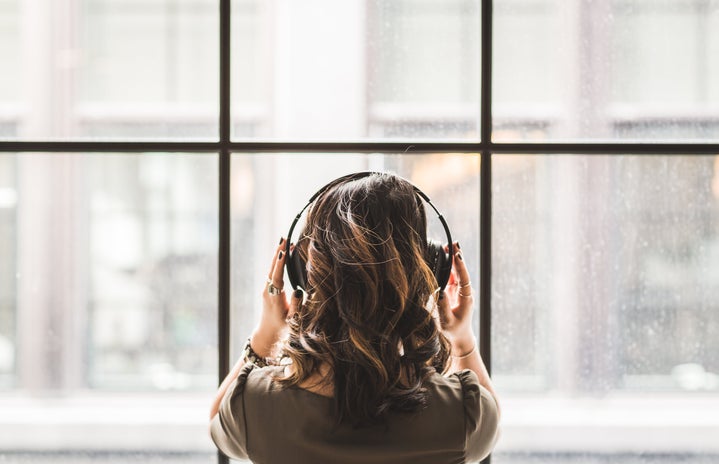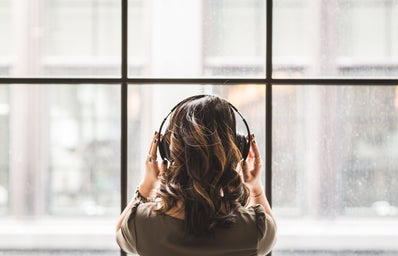Alex Cooper, Emma Chamberlain, Drew Afualo, and Brittany Broski are only a few of the many women who have taken the podcast world by storm. Recently, they and other women in the podcasting industry have gained popularity and media attention. Emma Chamberlain, podcast host for “Anything Goes,” has become the much-anticipated yearly interview host for Vogue at the Met Gala since she debuted in 2021. She is also far from the only one on this list to get such opportunities. At the 2023 Oscars, Drew Afualo, the “The Comment Section” host who gained fame for her TikToks calling out misogynistic influencers and posts online, joined as a red carpet correspondent. Women podcast hosts and producers cover it all, offering discussions ranging from popular culture, health, history, true crime, literature, and politics. The fields and backgrounds of women podcast creators are just as diverse as the topics they discuss, including those who are doctors, authors, celebrities (for my “The Good Place” fans out there, I highly recommend Jameela Jamil’s “iWeigh”), and even college students.
Women as podcast hosts and producers are not the only ones changing the face of podcasting either; female podcast listeners are on the rise as well. According to “The Women’s Podcast Report” by Edison Research and SXM Media, a growth in women listeners is closing the listening gender gap, making up 48% of all monthly podcast listeners in the US. Furthermore, this growing audience is “more likely to be young, affluent, and highly educated compared to the overall female population in the US”, with 61% having a college degree and 30% with a household income of $100,000 or more. Witnessing the momentum towards these women’s success, both as listeners and content creators, is undoubtedly exciting and empowering. However, despite this surge in feminine energy within the podcasting industry, much work remains.
While women podcast hosts and producers are certainly gaining attention, their presence within the podcasting industry continues to be an underwhelming minority. According to “The Creators” Report by Sound Profitable, only 29% of podcast creators are women, 69% are men, and 2% are non-binary. A glass ceiling also persists within top podcast charts. Of the 480 top podcast hosts analyzed by Quartz in 2019, only one in three were women. This poses an under-representational problem, with 55% of women who are monthly podcast listeners saying they would listen to more podcasts if they included female perspectives and 52% saying they would listen to more podcasts if they were hosted by women (SXM Media). According to “Women in Podcasting: We Should Tune In”, there are two possibilities as to why women are underrepresented in the podcasting industry including: (1) the defeatist and gendered assumption that technology is the expertise of men possibly de-incentivizes women to try the medium and (2) both an unconscious and implicit bias in both women and men to prefer lower-pitched voices. While this underrepresentation sounds like a broken record with a seemingly simple solution: getting more women interested in podcast listening and production, the glass ceiling in the podcasting industry is being reinforced by misinformation and extremism in the media.
These limitations on women’s voices and presence in the podcasting industry have posed a genuine threat to how women are discussed and represented online. This is especially pertinent when controversial male influencers such as Joe Rogan, Myron Gaines, and Walter Weekes have also gained traction on the platform, bringing along equally controversial guests such as Andrew Tate and self-proclaimed “anti-feminist” Pearl Davis. Under the guise of promoting “anti-mainstream” and “hustle” culture, these podcast creators have been able to spread messages defending traditional gender roles and “alpha male” ideology as well as amplify homophobic, misogynistic, and racist rhetoric online (Buzzfeed). In their episode “Females, Fitness, and Finances,” Gaines claimed, “One of the most uncomfortable realities is that women tend to live opportunistically. It is what it is, guys. It’s hardwired into them… We like them for their vanity. They like us for the security.” Joe Rogan also recently came under fire for guest Joey “Coco” Diaz’s admittance to sexually exploiting women at a comedy club because “That’s the gateway into coming to Hollywood, everybody knows that.” These statements depicting women and how they should be treated are not going in one ear and out the other either. Millions of listeners are tuning in, applauding their behaviour and fuelling further demand for their content. Gaines and Weeke’s podcast “Fresh and Fit” has 1.53 million subscribers on YouTube, and Joe Rogan’s “The Joe Rogan Experience” is currently the No. 1 podcast on Spotify. With all this in mind, have we lost hope for podcast content created by and for women? Not necessarily; this is possibly why the growing presence of women like Alex Cooper and Emma Chamberlain is so exciting for many avid podcast listeners. Their work (alongside that of the other women featured at the beginning of this article) is a breath of fresh air amid rising “alpha male” culture and under-representation. Some minimize their work, since most of them, especially Drew Afualo, unapologetically address and criticize misogyny online, yet their presence is doing much more for women and the future of podcasting than many may realize. In an interview with NBC Today, Brittany Broski highlights the activist aims at the heart of her podcast “The Broski Report” saying, “I can talk about who I am obsessing over, my music taste, and all that, but I also talk about bodily autonomy, women’s rights, religious trauma, things like that. I want to show people the whole, multifaceted version of a woman.” Thus, the content they offer reflects how diverse and representational the podcast industry should and can be. Thanks to these women and the growth of women listeners, there is hope in the rise of women’s podcasting and its challenge to misogyny spreading online.


